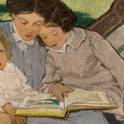Around the world, liberal democracy is in trouble. Opinion polls paint a grim picture: political dysfunction amid overlapping crises has left younger generations sceptical of the value of democracy and doubtful it can deliver for them. Those rightly worried by this call for urgent reform. But just what is it that needs reforming? What, exactly, is democracy, and why should we value it?
These are big questions. We often take democracy to refer to a system of representative self-government, committed to majority rule through fair elections. Joe Biden, in decrying the dangers of Trumpism, stresses just this. Democracy, he says, “means rule of the people, not rule of the monarchy, not rule of money, not rule of the mighty. Regardless of party, that means free and fair elections, respecting the outcome, win or lose.”
But when we fret about democratic backsliding, we tend to be worried about something more: namely the health of liberal democracies, which combine the bedrock principles Biden mentions with the rule of law, substantial individual rights and basic political equality. Why is it that we so often think of liberalism and democracy as going together? There is no law of physics that says they must. Democracies can be illiberal, just as liberal societies can be undemocratic. You might have democratically elected leaders trampling the rights of their citizens—see Viktor Orbán of Hungary. And citizens who technically enjoy the right to vote may still find themselves unable to participate meaningfully in the democratic process. This can happen, for instance, when corrupt elites find creative ways to thwart the will of the majority.
Why is it that we so often think of liberalism and democracy as going together?
We can better understand the connection between liberalism and democracy by going back to the moral conception of the person that, historically, has helped to justify both. At the heart of the liberal political tradition—classically associated with Immanuel Kant and John Stuart Mill—is the radical claim that all human beings, just by virtue of being human, are of equal moral worth, no matter the circumstances of their birth or where they are situated in society.
The liberal tradition takes this basic moral equality to ground equal social and political rights, including the right to vote. It therefore opposes any political system—from autocracy to hereditary monarchy—that fails to show equal respect for persons by turning morally arbitrary social differences into sources of political hierarchy and oppression. People must not be dominated or treated as mere means to others’ ends, and by the same token people have a right to participate in shaping their own destiny, rather than having one imposed upon them. Importantly, this task of democratic self-rule is a collective one. It seeks to secure everyone’s equal rights and freedoms, by means of collective decision-making.
Many defend the value of democracy on instrumental grounds, based on what it delivers, be it better laws and policies, stability or greater wealth. Amartya Sen famously wrote that “no substantial famine has ever occurred in any independent country with a democratic form of government and a relatively free press.” For others, liberal democratic politics, at their best, foster important ethical dispositions such as tolerance and truthfulness. Here, the idea is that we should value democracy because of who it allows us to become. Or we might follow the framers of the US Constitution in focusing on the evils that liberal democratic government helps us avoid. For them, protecting citizens from the exercise of arbitrary power was of utmost importance, and liberal democracy, despite its faults, was the best way of doing this.
But in thinking about the sort of democratic renewal we need today, it is helpful to go back to the equal moral worth of individuals. As Rousseau cautioned, extreme inequalities of status, wealth and power breed resentment and hate. These attitudes interfere with the equal moral concern for persons on which liberal democracy depends. One of the reasons we might think that extreme economic inequality and political polarisation are undermining liberal democracies today is because of the corrosive, dehumanising attitudes they generate.
At its best, liberal democracy is a shared project that seeks to build a future for all, not just for some at the expense of others. Self-government in a plural society, however, is a tricky enterprise, requiring that we acknowledge not just the legitimacy but also the equal dignity of our opponents. Without this, it is impossible to seek compromise in good faith. The Harvard philosopher and activist Danielle Allen is therefore right to stress that “repairing the relationships among us” is a matter of democratic urgency. For democracy is not just a system of rules enshrined on paper. It is also a fragile pact based on respect for our common humanity.
Write to Sasha
Each month Sasha Mudd, Prospect’s philosopher-at-large, will offer a philosophical view on current events. This month’s column was inspired by a suggestion from Michael Bursill
Email editorial@prospectmagazine.co.uk with your suggested topics















